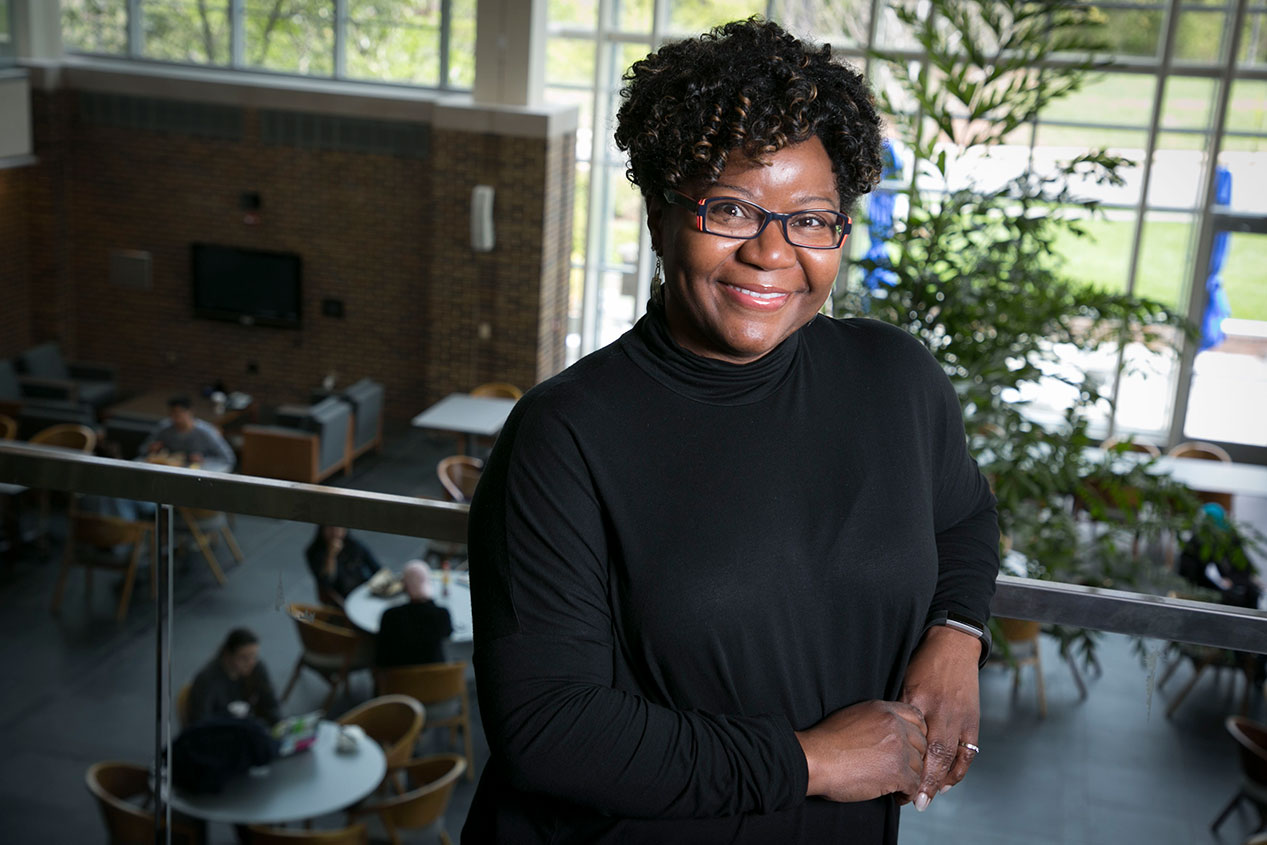Faculty Exchange Ideas on Duke’s Climate Commitment in Academic Council
Law faculty Trina Jones elected council chair

“What we can do to put Duke on map is to have every part of the university involved in this discussion,” said Bernhardt, who is co-organizer of the university course, “UNIV 102: Let’s Talk About Climate Change,”.
“We also have facilities involved so that we’re not just doing this in the classroom, but we’re working to make the campus itself more sustainable. The message is we all can make space and time and opportunity for everyone interested in this topic to be engaged.”
Cornes spoke about how the Campus Farm produce 19,000 pounds of produce for the local community, with the help “of thousands of student volunteer hours and several billion micro-organisms. The collective impact of this work helps students to see the landscape in a new way and that it’s possible to leave the landscape in a better condition than you found it. This work is transformative for many students.”
Albright shared how work on environmental justice is also attracting students and scholars to neglected topics that show how the burdens of climate change are falling disproportionately upon the Global South and marginalized communities within the United States. She noted that academic institutions must address structural challenges to do this work effectively.
“A lot of the work of environmental justice is slow, and it’s not going to be published in the top tier journals,” Albright said. “We need to think about incentive structures for promotion. How do we think, for example, about community engagement, and how is that given weight in tenure decisions?”
Wilson shared how his center is addressing food waste, a source of greenhouse gases that needs policy solutions. “One thing I would like to see more of [at Duke] is critical thinking about climate issues surrounding agriculture,” he said.
One goal of the commitment is to create a new generation of leaders literate on climate issues, and Bernhardt said she is seeing evidence of that already. In the UNIV 102 class, Sanford School professor Nick Carnes had students challenge themselves by talking about climate change with people who don’t believe in it.
“What worked is starting from a place the other person cares about,” Bernhardt said. “You have to have some connection. Some students didn’t change minds, but they had conversations about weather, drought, salinization that had that connection. And the students came back saying ‘I’m ready to have these conversations.’
“It would be an amazing global export of the Climate Commitment to have these students going out and starting these conversations wherever they go.”

In other council action:
- Trina Jones, Jerome M. Culp Distinguished Professor of Law, was elected to a two-year term as Academic Council chair. She will succeed current chair Erika Weinthal in July 2023.
Jones has served six terms on the council, and has been a member of the council’s executive committee. Her record of university service also includes membership on trustee committees and co-chair of the University Task Force on Diversity.
- Jenny Lodge, vice president for research and innovation, updated faculty on the creation of a new research policy handbook. Part of this work, Lodge said, means removing a section on research policy from the current faculty handbook.
“Research policy extends beyond just the faculty,” she said. “It covers students, graduate students, postdocs and others, and we need an easily accessible single source where people can go for research policies.”
Faculty raised concerns that this would mean changes to research policy might not go before the Academic Council for approval, but Lodge said they would work closely with faculty leaders to decide when policy changes were significant enough to need council review.